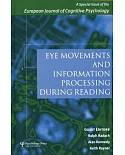Because of the ease with which we perceive, many people see perception as something that ��ust happens.��However, even seemingly simple perceptual experiences involve complex underlying
mechanisms, which are often hidden from our conscious experience. These mechanisms are being investigated by researchers and theorists in fields such as psychology, cognitive science,
neuroscience, computer science, and philosophy. A few examples of the questions posed by these investigations are, What do infants perceive? How does perception develop? What do perceptual
disorders reveal about normal functioning? How can information from one sense, such as hearing, be affected by information from another sense, such as vision? How is the information from all of
our senses combined to result in our perception of a coherent environment? What are some practical outcomes of basic research in perception? These are just a few of the questions this
encyclopedia will consider, as it presents a comprehensive overview of the field of perception for students, researchers, and professionals in psychology, the cognitive sciences, neuroscience,
and related medical disciplines such as neurology and ophthalmology.





















